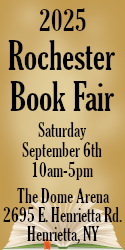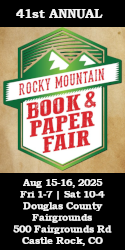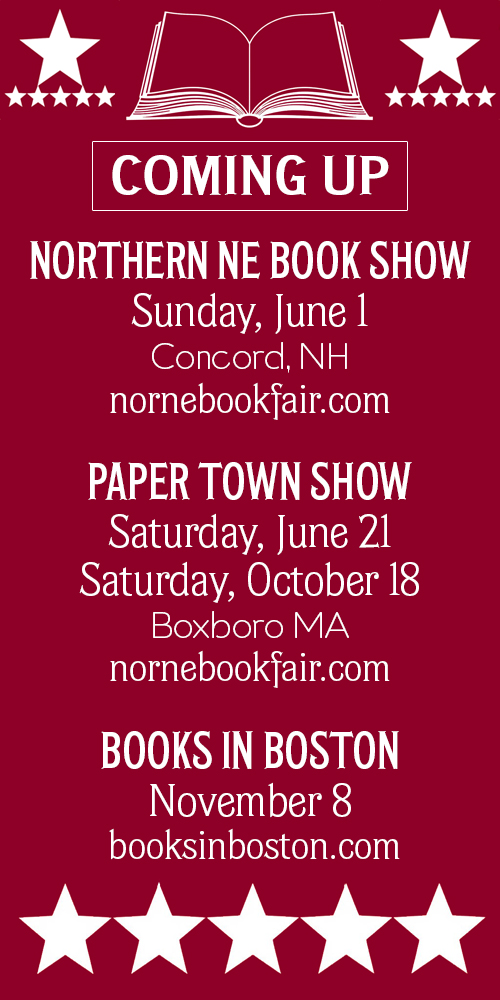Of Saints, Sex and Censorship
You will not know – unless you are a hagiologist – that March 8 is the feast day of St. John of God, patron saint of booksellers and printers. It is nice to know that we have a patron saint, a sort of guardian angel who is watching over us and – perhaps – giving us the occasional lucky break. However, you may feel, as I do, that St. John of God, is really not the right saint for the job. Born in Portugal in 1495, his first appointment was as a mercenary in the army of the Count of Oroprusa of Castile; he fought the French and the Turks, notably in Hungary, and when the Islamic hordes were repulsed, he retired to Andalucia and became a shepherd. Aged around 40, he became a bookseller and dedicated his life to the service of God. I quote from his potted biography in The Oxford Dictionary of Saints (2nd ed. O.U.P. 1987): “In Gibraltar he became a pedlar who sold sacred books and pictures so successfully that he opened a shop in Granada in 1538. He then suffered a period of apparent madness, running aimlessly through the streets, tearing his hair, and giving away his stock of books. John of Avila, a famous visiting preacher, calmed him and persuaded him to devote his energies in future to the care of the sick and the poor.”
Perhaps bookselling in Spain is more arduous than elsewhere. You will recall the case of the 19th Century Barcelona bookdealer – Don Vicente, a former monk of the Cistercian order – who took to murdering his customers. Whenever he sold a rare and attractive book, he was so overcome with rage and remorse that he would follow the luckless purchaser out of the shop, stalk him through the streets of Barcelona, then in some quiet back alley, knife him. Having retrieved the book, he would return to his shop and, presumably, hope not to sell it again.
It is easy to forget how important to ordinary people the feast days of saints once were. When, in the western world, to be a Christian meant to be a Roman Catholic, workers labored six days a week and had no personal annual vacations. But they did enjoy numerous public holidays, celebrated on certain holy days and saints’ days (some of which were marked in red in their calendars and so known as Red-Letter Days). It is estimated that these non-working days in medieval times numbered as many as 150 per year. And this was in addition to 52 non-working Sundays. All up, not a bad score! But I digress.
The truth is, St.John of God is the nearest we can find to a hands-on bookseller saint. It is a shame that the Venerable James Duckett, the London bookseller who was executed at Tyburn on 19 April 1601, has not been advanced to sainthood. He remains simply a Venerable Martyr, but he deserves more. Duckett was a thorn in the side of the Protestant establishment of Elizabethan England; a convert to Catholicism he spent no fewer than nine years in prison “owing to his zeal in propagating Catholic literature...His last apprehension was brought about by Peter Bullock, a bookbinder, who betrayed him in order to obtain his own release from prison. His house was searched on 4 March 1601, Catholic books were found there, and Duckett was at once thrown into Newgate. At his trial, Bullock testified that he had bound various Catholic books for Duckett, which the martyr acknowledged to be true. The jury found him not guilty, but Judge Popham at once stood up and bade them consider well what they did, for Duckett had had bound for him Bristowe’s Motives a controversial work particularly odious to Anglicans on account of its learning and cogency. The jury thereon reversed its verdict and brought in the prisoner guilty of felony....Bullock did not save himself by his treachery, for he was conveyed in the same cart as Duckett to Tyburn where both were executed, 19 April 1601.” (Catholic Encyclopedia, 1914).
What a story. Rotten judge, spineless jury, lousy laws, excessive punishment: only the bookseller shines forth for his steadfastness in sticking to his faith and his principles and (as it happens) dying a brave and dignified death. If you have no sympathy for the jury who did such a speedy volte-face you would do well to remember that being a juror in Tudor times was a perilous business. When on 17 April 1554 Sir Nicholas Throckmorton was tried at the Guildhall in London on a charge of being an accomplice in the Wyatt conspiracy against Queen Mary, the jury (despite the efforts of the judges to browbeat them) stood their ground and found him not guilty. The government was so displeased with this courageous verdict that all the jurors were thrown into prison, kept there till the end of the year and released only on payment of a fine amounting to what was then the enormous sum of 2,000 pounds sterling. How’s that for good old British fair play?
James Duckett’s story so interested me that I dug out a biography of him: James Duckett by M.M. Merrick (Douglas Organ 1947), a volume which has lain doggo on my bookshelves waiting for just this moment. On the front free endpaper the first owner has written: “N.R.Dunne. Feast of the Purification of B.V.M. 1947.” Even at this late date Catholics were aware of their red-letter days; this one, the Purification of the Blessed Virgin Mary (or Candlemas) is celebrated on February 2. On the verso of the title page appear these words: “Nil obstat. |Imprimatur + Thomas Episcopus Medioburgensis Die 19 Martii 1947” which, loosely translated, means: “There is no objection. Let it be printed. + Thomas, Archbishop of Middlesborough, 19 March 1947.” In other words, the book has passed the Roman Catholic Church’s censor and has received the church’s “imprimatur”. It is mildly ironic that this book about Duckett, champion of the freedom of the press and victim of authoritarian censorship, should have had to undergo scrutiny by his “home-team” censors. But the Roman Catholic Church, like all powerful institutions, is sensitive to any whiff of subversion. Any thoughts or opinions which could undermine its authority, or corrupt the faithful, are nipped in the bud, especially when they emanate from within.
The Catholic Church has had centuries of practice. And compared to other powerful institutions it plays a fairly open hand. You generally know where it stands. From 1559 to 1966 it published a black-list of books which it adjudged pernicious, the famous (or infamous) “Index Librorum Prohibitorum”. You can have fun browsing this list on the Internet. Whole chunks of great French literature (for example) were denied to the devout: Balzac, Stendhal, Flaubert, Victor Hugo, Alexandre Dumas, Zola, Gide and Sartre all feature on the index. You wonder if to be “indexed” was a mark of honor in some Parisian literary circles. And when it came to French literature what on earth did Catholic students get to study?
The “Index” was discontinued in 1966. Maybe, by the “swinging sixties” the flood of pernicious books had become too much for church censors to cope with. The church must have realised that, by the middle of the 20th Century, “indexing” a book generally did little to prevent its distribution. And prohibition – as we well know – is often counter-productive. To ban a book is to confer on it the desirability of forbidden fruit. Perhaps this is the reason why so many books that you would expect to find on the “Index” do not appear there (there are only about 4,000 titles in all). And in the case of immoral or subversive (rather than heretical) books, the church could leave the job of suppression to the civil authorities who were equally zealous in their efforts to stamp them out.
For a large part of the twentieth century, Australia was in the front rank of the stampers-out. By 1936 the list of books prohibited by the Australian government numbered about 5,000, which comfortably exceeds the Vatican’s “Index”. Some books – by Apuleius, Boccaccio, Rabelais, Balzac and Defoe – feature on both lists but Australia is the clear winner in the modern literature stakes. Ulysses and Dubliners by James Joyce, Aldous Huxley’s Brave New World, Down and Out in Paris and London by George Orwell, 1919 by John Dos Passos , God’s Little Acre by Erskine Caldwell, and – it seems incredible – Thorne Smith’s The Bishop’s Jaegers were all on the prohibited list in the 1930s. After the war, numerous popular novels such as Kathleen Winsor’s Forever Amber and James Cain’s The Postman Always Rings Twice were banned. By 1951 the list of banned books was reviewed and reduced to a mere 178 titles. Controversial literary works were thereafter submitted to a book censorship advisory board who nevertheless saw fit to prohibit the following: Salinger’s The Catcher in the Rye, Brendan Behan’s Borstal Boy, Lady Chatterley’s Lover by D.H.Lawrence, Another Country by James Baldwin, Lolita by Nabokov and William Burroughs’ The Naked Lunch. The usual suspects! Oh, and two more: Selby’s Last Exit to Brooklyn and Philip Roth’s Portnoy’s Complaint. Though politically subversive (usually Communist) books were banned too, you will note that it is predominantly novels dealing with or portraying sex which were prohibited.
Not that Australia was alone in questioning the fitness of such books for its adult reading public: other countries anguished in open court about whether some of them were obscene or depraved. When we read these books today it is hard to understand what all the fuss was about. This is because the wowsers lost the battle long ago. (A wowser is the pleasant Australian term for a person of a puritanical disposition whose mission in life it is to stamp out all of life’s pleasures. Their motto: “Wow, sir! If you’re having fun, I’d better stop you!” Or so I surmise.) But when the wowsers were in the ascendant, the battle was real and – at times – ludicrous. Part of the problem was that – before the advisory board was set up in 1951 – it was often up to Customs officers and police officers to make moral judgements on books which were being imported into the country or complained about by wowsers. H.G.Wells remarked: “A barrier of illiterate policemen and officials stands between the tender Australian mind and what they imagine to be subversive literature.” It was an impossible task. Under cross-examination, policemen could be browbeaten and made to look stupid: At one trial the defending counsel seized on one word: “Incestuous,” he said to the police witness. “Do you know what the word means?” “No, sir, but I know it means something dirty.”
The book censorship laws in Australia were more or less abolished in the 1970s: certain books – usually those with explicit sex – are corralled into “Adult Book Shops” but in recent years I know of hardly any books being banned or censored here in recent years, except some few which advocate illegal activities or which have been adjudged by the judiciary to be libellous. This is not the case with films. We still witness famous battles between censors and cinema-owners over the showing of controversial movies. This is not the place to go into it, but the issue is often about consistency. How come this particular film can be shown and this one cannot? The same question can be asked about books. The final part of Australia’s Censorship Crisis (Sun Books, Melbourne 1970) makes the point very nicely. It quotes extracts from seven novels and invites you to judge which ones are on Australia’s banned list (still active at the time of publication). Needless to say, the “juiciest” extracts come from unbanned books: Gulliver’s Travels by Swift, Couples by John Updike, Myra Breckinridge by Gore Vidal and The Spy Who Loved Me by Ian Fleming.
Over the years several Australian booksellers and publishers have been prosecuted for publishing, importing or selling prohibited books. Confiscation and fines were the usual penalty, prison rarely. Richard Neville, editor of the controversial Sydney magazine “Oz”, was awarded a six-month prison sentence (later quashed) by a Sydney court in 1963 on the grounds of publishing obscene literature; in 1971, having transferred the magazine to London, he was sentenced to fifteen months imprisonment for issuing a publication likely “to corrupt public morals”. The trial made the headlines and the sentence was quashed on appeal. The case helped establish the legal principle that, in a democracy, adults are at liberty to decide for themselves what books they will read, without the benefit of “Big Brother’s” say-so. As far as I know, no Australian bookseller has been imprisoned for breaching the censorship laws and none executed.
While I have great admiration for the Venerable Andrew Duckett, martyred for selling his beloved Catholic books, I wonder now whether it is not almost as admirable for a bookseller to stock and sell books of which he does not approve. Every working day, all booksellers give their “imprimatur” to certain books that are acceptable to them commercially, philosophically or politically. They buy them and place them on their shelves. Others – the black sheep – they keep out. But, perversely, serious booksellers also stock controversial or obnoxious books of which they do not approve but which seem to them to be important. This can take some courage. I have been upbraided by a Muslim for displaying Salman Rushdie’s The Satanic Verses and verbally abused and threatened by a Greek man who bought a book from me which asserted (quite correctly) that Alexander the Great’s Macedonians were not Greeks. And whenever I have a copy of Hitler’s Mein Kampf in stock someone is bound to remark: “I’m surprised to see you have a copy of that disgusting book on your shelves.” (The implication being that I’m a neo-Nazi). When I am feeling belligerent I reply: “Well, I stock copies of Das Kapital and The Holy Bible too, parts of which many people – including myself – find pretty disgusting. So there.” But generally I try to explain my rationale: it is better to let people read for themselves a book which is controversial, to read the words and arguments at first hand and to make their own judgements. This is what, in a democracy, we allow (and encourage) adults to do.
At the moment I happen to have some books by David Irving on my shelves. David Irving is an English historian, who like Ernst Zundel in Canada, is labelled a “holocaust denier.” From what I have read about these two men, it seems that – amongst other things – they both question the accuracy of the numbers of Jews killed by the Nazis before and during the Second World War: they demonstrate (presumably to their own satisfaction) that the figure of six million killed is an exaggeration. (Zundel puts the figure at around one million). But the only way we know for sure what these people are arguing is by reading their books, and then, like any mature reader with some sense of academic rigor, make an informed judgement. This may include reading books and articles that refute them – pointing out errors, sophistries or prejudices where they occur. “Dry light is ever the best,” said the philosopher. Meaning (I take it) that truth is best revealed by the cool light of reason, and not by screaming ad hominem insults.
David Irving has been discredited in the English courts. In April 2000 he brought a civil suit against Penguin Books and Professor Deborah Lipstadt for libelling him as an anti-Semite in her book Denying the Holocaust. Judge Charles Gray ruled in the High Court that Irving had “persistently and deliberately manipulated historical evidence”, that the criticism of him in Prof. Lipstadt’s book “were almost invariably well-founded” and that he is a “racist who associates with right-wing racists who promote neo-Nazism.” David Irving lost the case and was ordered to pay substantial damages. So why would I stock his books? Because these are primary texts written by a leading revisionist historian. My guess is that over time they will become less useful and important, and probably unsaleable.
The case of Ernst Zundel is more interesting. A long-standing Canadian resident living in Tennessee, in February 2003 he was arrested and deported to Canada where he was imprisoned without charge and held in solitary confinement for six months, on the pretext that he was a threat to national security. (It is possible that he is still in prison, I don’t know). Zundel had been on trial twice in Canada (in 1985 and 1988) on the charge of “publishing false news” about the Holocaust. On both occasions he was found guilty but on appeal both verdicts were overturned. “Canada’s Supreme Court on August 27 1992 threw out the second conviction, declaring that the archaic ‘false news’ law under which he had been convicted was a violation of the country’s Charter of Rights. This was not only a personal vindication by Canada’s highest Court; Ernst Zundel secured an important victory for the rights of all Canadians.” (quoted from Mark Webster’s Who is Ernst Zundel and Why is he in Prison?) I have no axe to grind for Mr.Zundel, though he seems to be a more agreeable character than David Irving, and no criminal, but I am appalled by his arbitrary imprisonment by the Canadian authorities. The shadow of the Venerable James Duckett falls over this sorry episode.
Someone who you may consider to be a stranger to “dry light” and who is given to screaming ad hominen insults is Michael Moore. I like him nonetheless. He is a tonic to us in Australia who are tired of being fed the official U.S. government party line from “embedded” journalists and establishment apparatchiks. His film Bowling For Columbine– as good a documentary as I’ve seen – whetted my appetite for more Moore. But I feared that in this film he was simply preaching to the converted. How many shooters and gun owners would ever see the film, let alone be persuaded to give up their firearms on the strength of Moore’s anti-gun tirade? I said as much to Simone, the long-suffering young woman who serves behind the counter at our local milk-bar. “Funny you should say that,” she said. “My two brothers – who are as red-necked as they come and go duck-shooting and everything – went to see Bowling for Columbine and they were completely blown away.” “Not literally, I hope.” “No, I mean they’ve decided to hand in their rifles and stop shooting things.” Which, if it is true, is a pretty remarkable testimony to the power of this film.
His book Stupid White Men (ReganBooks 2001) is shrill and over-states his case, but it is nonetheless powerful. You have almost certainly read it. If you have not you must know about it. Even in Australia most people know about it. And some of us, while heartened by the contents, are astonished that the establishment in the U.S.A. will tolerate publication of such overt and savage criticism of itself. Surely Moore would be swiftly muzzled, discredited as “un-American” and at the very least imprisoned (without charge) in Guantanamo Bay? But no. It hasn’t happened. How come? Is your government not interested in censorship or what?
You will not have read in your copy of Stupid White Men the introduction which Moore wrote for the Penguin edition “published for the English-speaking world outside North America, the continent where the majority of the pathetically stupid, embarrassingly white, and disgustingly rich white men live.” (Did I not say shrill?) In his introduction, Moore outlines the publishing history of the book. He says that the first 50,000 copies came off the presses on September 10, 2001. His publishers, ReganBooks/HarperCollins (a division of publishing giant News Corp, headed by Rupert Murdoch) – in the aftermath of September 11 – then shelved the book, saying to Moore: “We can’t release the book as it is written. The political climate of the country has changed. We would like you to consider rewriting up to 50 per cent… removing the harsh references to Bush and toning down your dissent.” Moore refused to re-write and, bound by contract to his publishers for a year, resigned himself to seeing his book being pulped. But a New Jersey librarian, Ann Sparanese, thought otherwise. Having heard Moore tell his story at a citizens’ action council, she contacted other librarians and asked that everyone write to HarperCollins to demand that they release Moore’s book. Faced with this public outcry, followed by unflattering exposure in Publishers’ Weekly, HarperCollins finally gave in. The book was published and, as you well know, became an immediate bestseller.
This sounds like a warm and fuzzy David vs. Goliath story, until you read that it was first at Michael Moore’s own request that publication of Stupid White Men was suspended. And it is certain, that even if ReganBooks had sat on the book for a year, at the end of that time another publisher would have picked it up and published it. Which is what happens in the U.S. and other free societies: even with the big battalions dominating the media and largely calling the shots, there is always someone else waiting in the wings, willing to punt on what looks like a worthwhile or commercially viable book. As for government concerns, why should they worry? Democracy is about numbers. Relatively few voters in the U.S. will ever hear about, let alone read, Michael Moore. And he can (if necessary) always be “spun” out of the equation. Look at this guy – a lunatic lefty, scruffy and overweight, hairy and hilarious, court jester who thinks he has a licence to tell the king that he is wearing no clothes. And remember what the president said: those who are not with us are against us. Moore is at best a joke, at worst a traitor. Fifty million American voters nod their heads. Job done.
Someone pointed out to me that the U.S. government is not the major player in the censorship business. That honor has passed to the lobby or special interest groups. Can you imagine a book entitled Stupid Black Men getting past the racial vilification people? Or a book entitled Stupid White Women getting the imprimatur of women’s rights activists? I must say, I doubt it. (Only a few years ago I remember seeing a new book entitled All Men Are Bastards along with the All Men Are Bastards Diary and The All Men are Bastards Calendar. Knowing a very small number of men who are not bastards, I felt pretty offended. I wish I had made an official complaint, to help redress the balance). Everywhere there are special interest groups looking out for their rights, many of which are enshrined in law. This is not necessarily a bad thing, but those of us who are white and men and only sometimes stupid need to look out for our rights too.
Schools, churches and libraries may also act as effective censorship groups. They can be effective because they are closed communities and can enforce their bans. Only the other day I read of a group of Christian schools in Melbourne which have banned the Harry Potter books as “tending to promote magic, witchcraft and sorcery”. My feeling is that they are on a loser with this particular edict but you have to admire their zeal. Librarians are notorious for their sensitivity and for their political correctness. Here in Melbourne books with “golliwogs” were banned years ago; fairly recently the “Billy Bunter” books, which tell tales of a fat boy at a boarding school were outlawed (lest they upset fat children). And so on. You wonder where it will all end. Enid Blyton’s The Adventures of Noddy and Big Ears is already under threat because of the latent theme of homosexuality or even paedophilia (Big Ears is a lot older than Noddy). Big Ears may have to be written out completely in case children with sticky-out ears feel put down. It’s a dangerous world, the world of children’s fiction. Many libraries have a blacklist of children’s books which they will not handle; because the themes or the language are considered to be offensive or prejudicial. I have even heard tell of a librarian who, while privately condemning certain books (Huckleberry Finn is one), refuses – on the “forbidden fruit principle” – to put them on the banned list. So, in a delicious irony, we now know that somewhere in the world there is a list of books which are banned from the banned books list!
All this is progress of a sort. At least our governments and our churches no longer burn books and their authors, nor do they hang booksellers. By and large we booksellers can sell the books we choose to, without interference. We should occasionally spare a thought for the resolute booksellers, writers and publishers who have gone before us and who, in the matter of censorship and press freedom, have fought our battles. We stand on their shoulders, while, just maybe, a guardian angel perches on one of ours.
Anthony Marshall is the owner of Alice’s Bookshop in North Carlton, Melbourne, Australia. He is a member of ANZAAB (Australia and New Zealand Association of Antiquarian Booksellers) and author of “Trafficking in Old Books” (Lost Domain, Melbourne, 1998). He can be contacted at books@alices.com.au.


























